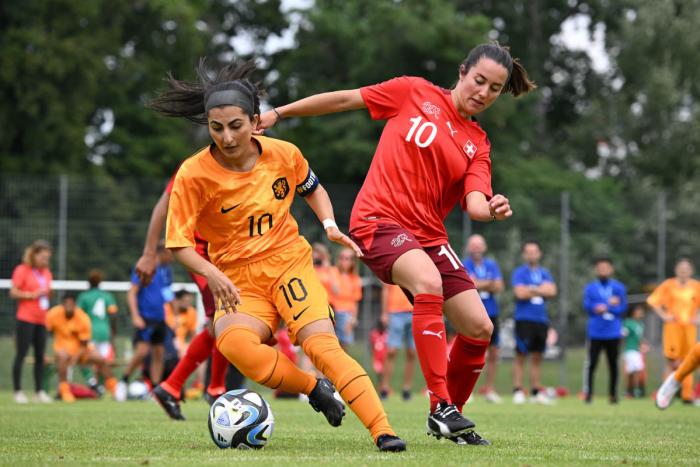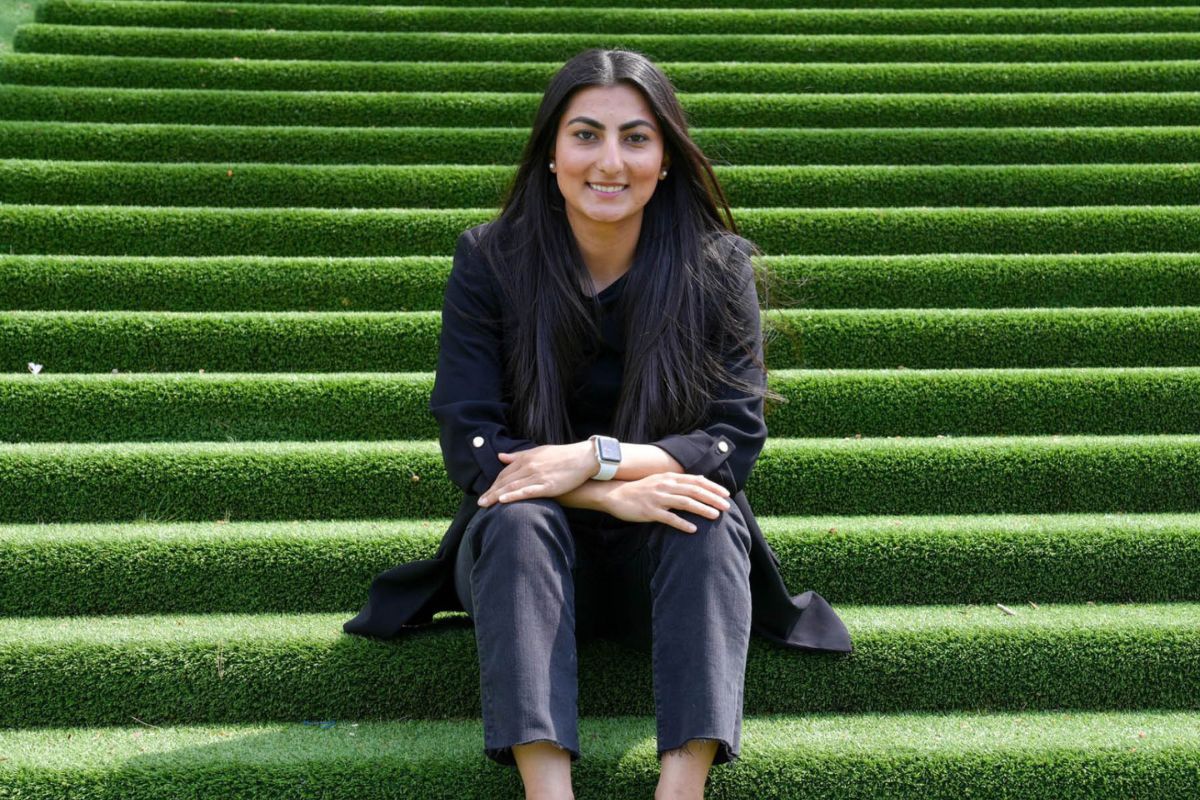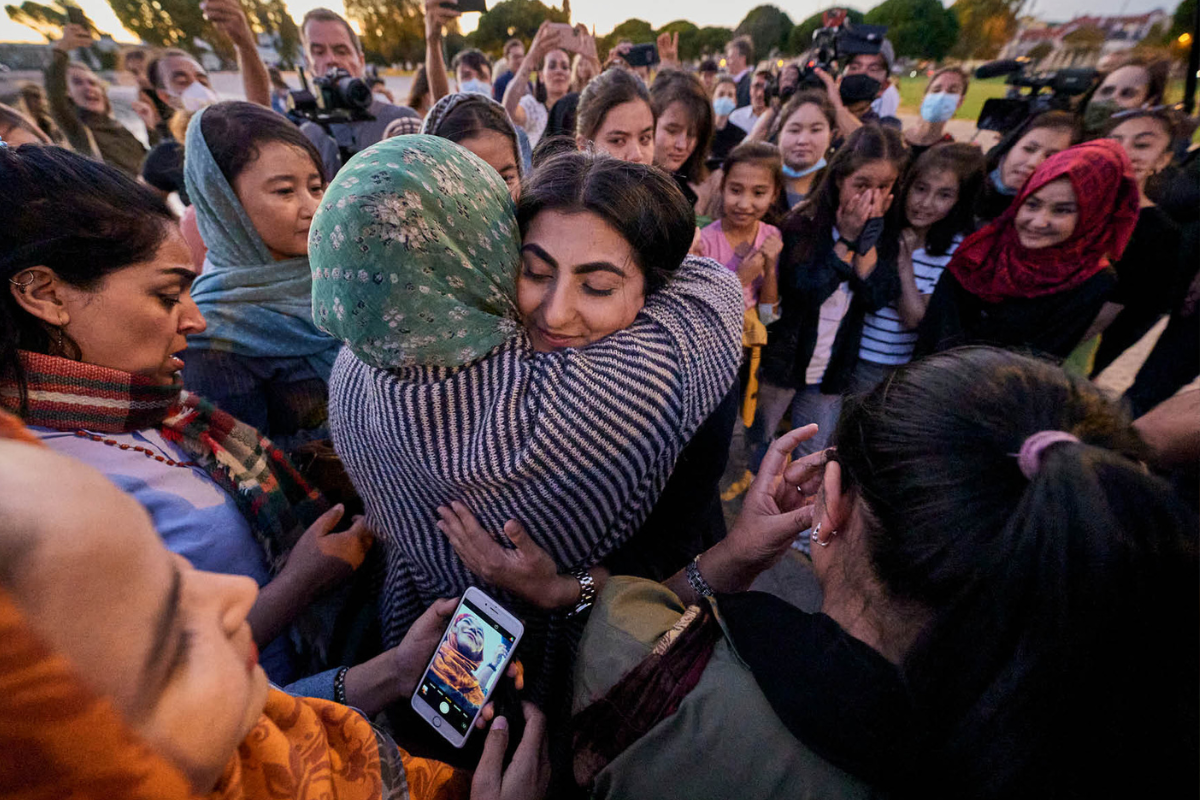How Farkhunda Muhtaj’s passion for sport is a conduit for social justice
Professional soccer player and social activist Farkhunda Muhtaj knows firsthand how sports can impact the lives of vulnerable communities for the better.
This article originally appeared in CEO Magazine.

As the captain of the Afghan national women’s soccer team, Farkhunda Muhtaj spent the summer of 2021 preparing for the team’s participation in the Asian Football Confederation Women’s Asian Cup qualifiers.
While one eye was on tournament strategy, she had the other on the advance of the Taliban in the country her family fled from several years before she was born in 1997.
“On the ground, everyone was so confident that the Taliban would never take over Kabul again,” she recalls of the time.
Muhtaj arrived in Canada as a two-year-old. First selected for the Afghan national team in 2016, she was among the players coming from the Afghan diaspora. The other half of the team came from within the country.
“Their attitude was not to worry, that everything would be completely fine,” she says.
That all changed overnight on 15 August 2021, when the Taliban rolled into Kabul.
“Immediately, the secretary of the women’s football federation contacted me and told me that the Taliban had visited their offices, demanding files of players,” she explains. “They were told that the female players had been in the media and that profile meant that they didn’t have a future in the country.”
With the lives of her teammates at risk, Muhtaj, just 23 at the time, knew she had to act, even if she wasn’t sure what form that would actually take.
After contacting non-governmental organizations and humanitarian agencies with little success, she answered a call from her mentor, former Iran women’s national soccer coach Katayoun Khosrowyar, asking how she could help.
“She was able to connect me to United States government officials,” Muhtaj says. “And they were willing to support me.”
From her home in Canada, Muhtaj was able to organize the evacuation of her Afghan-based teammates to Portugal, in what would become known as ‘Operation Soccer Balls’.
While the team has lost its official status, the players continue to meet for training camps in Portugal (often sponsored by private or corporate donors) waiting for the day that FIFA gives them the go-ahead to return to the pitch. Behind the scenes, it’s Muhtaj campaigning for their re-inclusion.
A Global Active Citizen

Muhtaj is speaking to The CEO Magazine from the Netherlands, where she currently plays as a midfielder for Fortuna Sittard in the Eredivisie women’s soccer league.
Aside from her on-field commitments, she is the Director of Conscience and Culture at the Respect Group, an Afghanistan Humanitarian Ambassador for Penny Appeal Canada and an Ashoka Young Changemaker, among her other social causes.
She describes herself as a “professional footballer and a social activist that uses sport to help impact the lives of vulnerable groups”, or, in other words, a “global active citizen”.
“As a person, I’m someone that is committed to their purpose, which is to help make a difference in the world,” she explains. “That really comes from the fact that I’m an immigrant to Canada. My parents came as refugees. So I know the struggles that generations of Afghans have gone through and I want to help alleviate some of them.”
Growing up, she always knew that playing soccer was a privilege that stemmed from her faith, Islam.
“Within my family, faith comes before culture,” she says. “We have a gender-equal environment.”
Her parents encouraged all seven of their children, whether girls or boys, to go to the mosque or attend tutoring.
“Anything that my brothers did, I did, and vice versa,” she explains. That included soccer.
She was also aware early on that the sport was more than a game.
“As I got older, I started to increasingly use sport to impact society,” she says, noting the changemaker light bulb went off when she first represented her country.
“It made me see that playing football is about shifting gender norms within Afghanistan and helping empower women and girls. We sent the message that if you believe and are passionate about something, then you should go and reach those dreams.”
Building Bridges

Amid her on-field commitments, Muhtaj has found time to complete two Bachelor’s degrees in science and education at Toronto’s York University and deliver her first lessons in the classroom.
When the COVID-19 pandemic first swept across the world in 2020, she saw how disproportionately affected refugees and newcomers were in Canada and was spurred to act. Scarborough Simbas was the response.
“It’s a free recreation program created to ensure that newcomers and refugees have a place where they are refreshed both physically and mentally,” she explains.
Every week, Muslim youth are welcomed into the inclusive environment where they share meals, play soccer and learn leadership skills. “We want to help build transferable skills that they can take to the workplace in the future,” she says.
What lessons from soccer have influenced Muhtaj off the pitch?
Speaking of the future, Muhtaj says that she doesn’t plan on playing soccer forever. “I love football,” she reflects. “But within the next decade, I plan to transition smoothly away from the field but continue to use sport to build bridges and communities.”
The ideal next step would be big global organizations: FIFA, the Union of European Football Associations or the United Nations High Commissioner for Refugees are the names she mentions.
“I would really like to help shift policies that disadvantage vulnerable groups and then obviously use the power of sport to help them build their future,” she says.
Developed in partnership with Ashoka, the INKEY Impact Fund is led by young changemakers, including Muhtaj, and has funded youth-led and youth-focused organizations around the world. She is a natural fit with Ashoka’s mission of bringing together and supporting the world’s leading social entrepreneurs.
“It’s an honor to be able to help shift policies or help inform organizations of how they can do a better job at ensuring youth are involved, that their voices are heard and that they do have the platform to build change.”